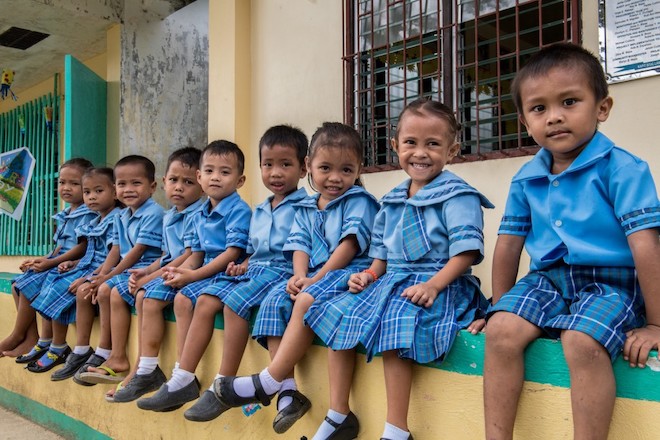
Around 140 million children and adolescents in Southeast Asia have suffered unprecedented education and learning disruptions because of the coronavirus disease (COVID-19) pandemic. With schools closed at an average of 136 days over the past 18 months, the negative physical, mental, and educational impacts on these students may become irreversible unless appropriate actions are taken to safely reopen schools immediately and mitigate losses in learning. The impact of missed learning opportunities is greatest on pre-primary children.
A policy brief from the Association of Southeast Asian Nations (ASEAN) says school closures should be the last resort in a crisis to avoid negative impacts on children, particularly young learners. The paper provides “key strategies based on emerging global and regional evidence to reopen schools as an urgent priority and tackle various challenges of education disruptions.” It also recommends actions for regional and international cooperation. The policy brief was developed by the ASEAN Secretariat and UNICEF East Asia and the Pacific Regional Office.
Consequences of school closures
According to UNICEF, the associated consequences of continuous school closures are staggering and include learning loss, mental distress, missed school meals and routine vaccinations, heightened risk of drop out of structured education, increased, child labor, and increased child marriage. Many of these dire consequences are already affecting countless children, and many will continue to be felt in the years to come.
Existing evidence shows that the cost of addressing learning gaps is lower and more effective when the problem is tackled early on in a crisis, and that ongoing investments made in education will support economic recovery, growth, and prosperity.
However, if left unmitigated, learning loss has serious economic impact on society. Estimates of the Asian Development Bank (ADB) show that this could result in losses in lifetime earnings of $147 billion in the intermediate scenario and $197.4 billion in the pessimistic scenario for Southeast Asia. Losses as a percentage of the 2020 gross domestic product are estimated at 4.9% in the intermediate scenario and 6.5% in the pessimistic scenario.
Policy recommendations
The policy brief presents two objectives in responding to the urgent and long-term needs of ASEAN member states. The first is to provide immediate strategies for reopening schools safely from pre-primary to secondary education and for ensuring learning recovery and continuity. The second is to provide policies for the medium to long term that will help countries cope with future shocks and disruptions by making education systems more resilient.
It gives three key recommendations:
- Emphasize the equity principle and inclusion of the most vulnerable populations in all strategies.
- Prioritize support to pre-primary education and early learning with holistic support for young children.
- Conduct effective policy advocacy both by the education sector and by joint efforts with key ministries (such as health and social welfare) aimed at the state leaders on the two policy objectives. Strategies include offering various programs to help students with different needs, such as extended instructional time, remedial education, catch-up programs, and accelerated education. Students who may not be able to return to formal education will need alternative programs to continue learning.
Regional and international cooperation
The policy brief identified areas for regional and international cooperation. These include putting in place regional policy frameworks, such as an ASEAN strategic vision and plan to guide education systems in reopening and recovering learning, an evidence-based blended and remote learning policy framework, a regional policy framework for alternative education with recognized accreditation and equivalency certification, and regional or international agreements on the mutual recognition of educational certification.
Another area for cooperation is knowledge management. Countries should facilitate the sharing of information (e.g., school opening protocols, resurgence protocols), best practices, and effective strategies, such as on risk communication strategies, dropout prevention, flexible/alternative pathways, tackling violence, and promoting mental well-being in schools.
This article was first published by BIMP-EAGA on 3 May 2022.

